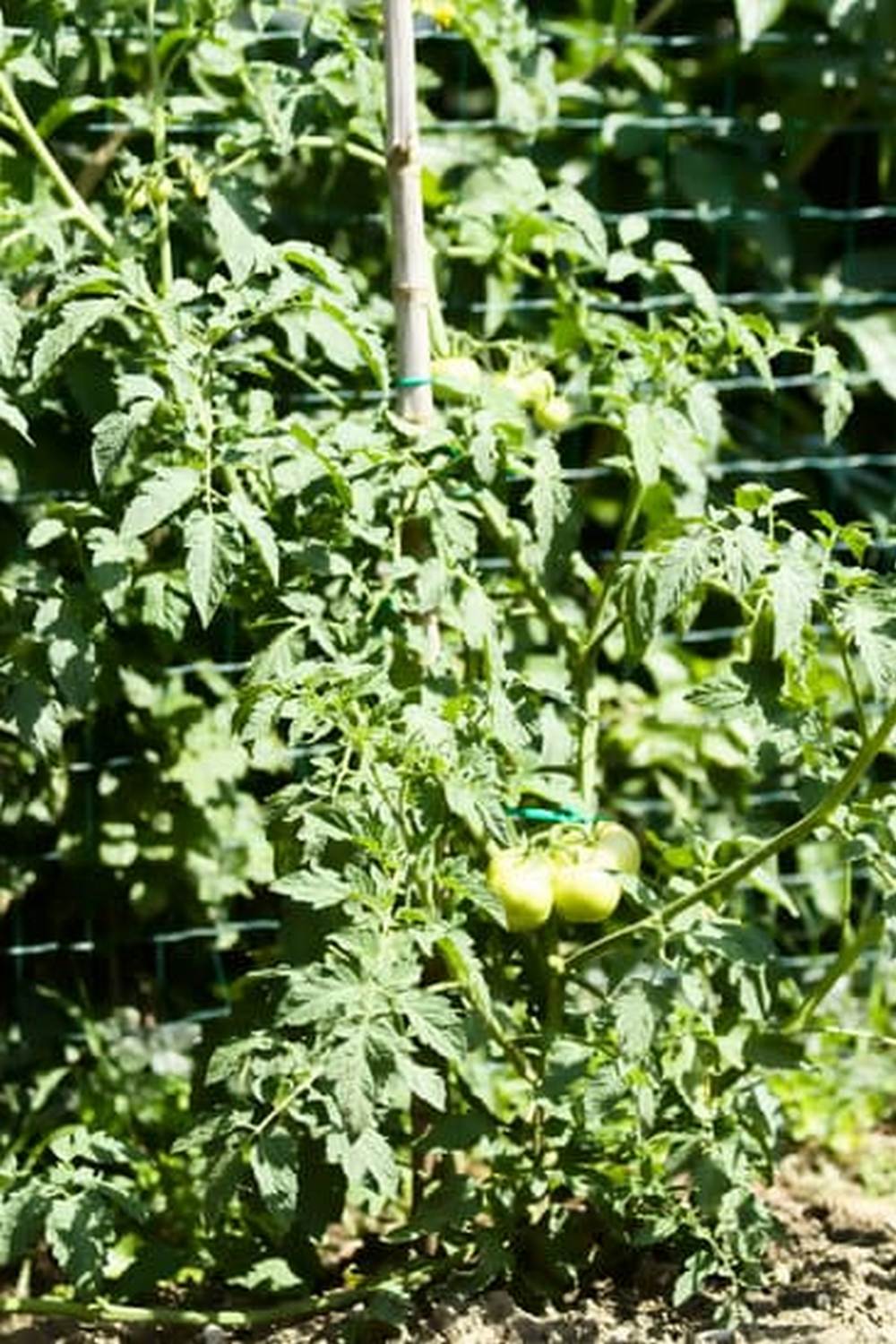Do chickens eat vegetable gardens? For many gardeners, this is a common concern when considering the idea of introducing chickens into their gardening space. Understanding the behavior of chickens in the garden is essential for maintaining a harmonious and productive growing environment. In this article, we will explore the various aspects of keeping chickens in your vegetable garden, including their feeding habits, benefits, and potential challenges.
Chickens are natural foragers and are known to have a penchant for pecking at various plants and insects in their surroundings. This often raises the question: do chickens eat vegetable gardens? While they can be drawn to certain vegetables and greens, there are ways to manage their behavior to ensure minimal damage to your garden beds.
In addition to addressing concerns about potential damage, it is important to recognize that having chickens in your vegetable garden can also offer numerous benefits. They can help with pest control, provide natural fertilizer, and contribute to a healthier ecosystem overall. By understanding how to strike a balance between the presence of chickens and a thriving garden, you can create a mutually beneficial relationship between the two.
The Benefits of Having Chickens in Your Vegetable Garden
Chickens can provide several benefits to your vegetable garden beyond just delicious eggs. When integrated properly, chickens can contribute to the health of your garden and help with pest control. Here are some key benefits of having chickens in your vegetable garden:
1. Pest Control: Chickens are natural foragers and will eat a variety of insects that may be harmful to your vegetables. This can help reduce the need for chemical pesticides and keep pests at bay.
2. Fertilization: Chicken manure is rich in nitrogen, phosphorus, and potassium, making it an excellent natural fertilizer for your vegetable garden. As chickens scratch and peck at the ground, they also help to aerate and turn over the soil, which can improve its overall health.
3. Waste Management: By allowing chickens to roam freely in your garden, you can also put their natural instinct to scratch and peck at work by having them help manage kitchen scraps and other organic waste.
In order to fully capitalize on these benefits, it’s important to consider how you integrate chickens into your vegetable garden without causing damage or disruption. With proper planning and management, you can enjoy both fresh eggs and a thriving vegetable garden. Here are some tips for effectively integrating chickens into your gardening practices:
– Utilize chicken tractors or movable fencing systems to allow your chickens access to different parts of the garden while still protecting delicate plants.
– Designate specific areas within your garden where chickens are allowed to roam freely, focusing on areas with less fragile vegetation.
– Implement a rotational grazing system so that chickens have access to different parts of the garden at different times, allowing plants time to recover and grow undisturbed.
By understanding these benefits and implementing best practices for managing chickens in your vegetable garden, you can create a harmonious relationship that is beneficial for both the poultry and the produce.
Common Vegetables That Chickens Are Known to Eat
Chickens can be opportunistic eaters and will readily consume many common vegetables found in the garden. It is important for gardeners to be aware of which vegetables are at risk of being eaten by chickens in order to protect their crops.
Some common vegetables that chickens are known to eat include:
- Lettuce
- Broccoli
- Cabbage
- Carrots
- Tomatoes (especially ripe ones)
- Zucchini
- Pumpkins
It is important to understand that chickens will often peck at various plants and veggies out of curiosity, and not necessarily because they are hungry. However, if left unchecked, chickens can cause significant damage to a vegetable garden.
Always keep an eye on your vegetable garden and monitor your chickens’ behavior around it. Do not leave them unsupervised near the garden, especially if it contains freshly planted or delicate young plants. Taking precautions and being mindful of which vegetables are vulnerable to chicken consumption can help maintain a peaceful coexistence between your feathered friends and your beloved vegetable garden.
How to Protect Your Vegetable Garden From Chickens
Chickens are known to be curious and voracious eaters, which can be a problem when it comes to keeping them out of your vegetable garden. So, how can you protect your precious crops from being devoured by your feathered friends?
One effective method is to install a physical barrier around your garden using chicken wire or hardware cloth. This will prevent the chickens from entering the garden and wreaking havoc on your plants. Make sure to bury the barrier at least 6 inches deep to deter the chickens from digging underneath it.
Another option is to use natural deterrents, such as planting strong-smelling herbs like rosemary, lavender, or mint around the perimeter of your garden. Chickens tend to avoid areas with strong odors, so this can help deter them from venturing into your vegetable patch.
Finally, consider creating designated feeding areas for your chickens away from the main garden. By providing them with their own space and plenty of tasty treats, you can help minimize their interest in exploring and potentially damaging your vegetable crops.
| Common Vegetables Eaten by Chickens | Effective Methods to Protect Your Vegetable Garden |
|---|---|
| Lettuce | Installing physical barriers using chicken wire or hardware cloth |
| Tomatoes | Using natural deterrents such as strong-smelling herbs |
| Zucchini | Creating designated feeding areas for chickens away from the main garden |
By employing these strategies, you can enjoy the benefits of having chickens in your yard without sacrificing the productivity of your vegetable garden. Finding a balance between providing access for your chickens and protecting your crops is essential for maintaining harmony in your backyard homestead.
Setting Up a Separate Feeding Area for Your Chickens
Benefits of a Separate Feeding Area
Creating a separate feeding area for your chickens can be beneficial not only for your vegetable garden but also for the health and well-being of your chickens. By providing a designated space for their food, you can better regulate their diet and ensure they are getting the proper nutrition. This can also help prevent them from wandering into the vegetable garden in search of food, reducing the risk of them damaging your crops.
Designing the Feeding Area
When setting up a separate feeding area for your chickens, it’s important to consider the size of your flock and the space available. The feeding area should be large enough to accommodate all of your chickens comfortably without overcrowding. Additionally, it should be located away from the vegetable garden to discourage them from venturing into the garden in search of food. You may also want to consider using fencing or barriers to further deter them from accessing the garden.
Feeding Options for Chickens
In the separate feeding area, you can provide a balanced diet for your chickens that includes a mix of grains, seeds, and other feed formulated specifically for poultry. You can also supplement their diet with kitchen scraps and leftover vegetables, which will not only reduce waste but can also serve as an additional incentive for them to stay out of your vegetable garden.
Additionally, providing access to fresh water at all times is essential for their health and overall well-being. By carefully managing their feeding in a designated area, you can help keep your vegetable garden safe from any potential damage caused by hungry chickens wandering through it in search of food.
The Impact of Chickens on Soil Health and Fertilization
Chickens can have a significant impact on the soil health and fertilization of your vegetable garden. When chickens are allowed to roam freely in the garden, they will naturally scratch and peck at the ground, which can help to aerate the soil and control pests. Their scratching also helps to break down organic matter, which in turn contributes to the overall health of the soil.
In addition to their natural behaviors, chickens also provide a valuable source of fertilizer for your vegetable garden. Their droppings are rich in nitrogen, phosphorus, and potassium, which are essential nutrients for plant growth. As chickens roam around the garden, their droppings become incorporated into the soil, providing a natural and sustainable source of fertilization.
It is important to note that while chickens can provide benefits to soil health and fertilization, they can also cause some damage if not managed properly. For example, excessive scratching and pecking can uproot plants and disturb seedlings. Additionally, their droppings can be high in nitrogen which may cause issues if over-applied in one area.
| Benefit | Impact |
|---|---|
| Aerates soil | Helps control pests |
| Provides valuable fertilizer | Droppings rich in essential nutrients for plants |
| Potential damage | Excessive scratching and over-application of nitrogen-rich droppings |
Tips for Training Chickens to Stay Out of the Garden
Training chickens to stay out of the garden can be a challenging but necessary task for many backyard gardeners. Chickens have a natural instinct to forage and explore, and they may not understand that your carefully tended vegetable garden is off-limits. However, with some patience and consistent training, you can teach your chickens to stay away from your precious plants.
Establishing Boundaries
One effective way to train chickens to stay out of the garden is by establishing clear boundaries. This can be done using physical barriers such as fences or chicken wire. By creating a visible separation between the garden and the areas where the chickens are allowed to roam, you can help them understand where they are and are not permitted.
Positive Reinforcement
Another important aspect of training chickens is using positive reinforcement. Whenever your chickens stay out of the garden or follow your instructions, be sure to reward them with treats or praise. This will help them associate staying away from the garden with positive experiences, making it more likely that they will continue to do so in the future.
Consistency and Patience
Consistency and patience are key when training chickens. It may take some time for them to fully understand and respect the boundaries you’ve set for them. Be patient with them, and consistently reinforce the rules you’ve established. With time and effort, most chickens can be trained to stay out of the vegetable garden.
By using these tips for training chickens to stay out of the garden, you can maintain a harmonious balance between your feathered friends and your vegetable plants.
Conclusion
In conclusion, finding a balance between allowing chickens to roam freely in your vegetable garden and protecting your precious crops is essential for maintaining a successful garden. While chickens can provide numerous benefits to the health of your garden, such as natural pest control and fertilization, they can also pose a threat to your crops if not managed properly.
One way to strike this balance is by setting up a separate feeding area for your chickens. By providing them with their own designated space for food, you can reduce their incentive to venture into the vegetable garden in search of snacks. Additionally, implementing physical barriers such as fences or chicken wire can help deter chickens from accessing your crops without restricting their movement entirely.
It’s important to also consider the impact of chickens on soil health and fertilization. As they scratch and peck at the ground, they can help aerate the soil and distribute nutrients. However, their droppings may require proper management to prevent nutrient imbalances or contamination. By taking these factors into account and implementing strategies to train chickens to stay out of the garden, you can find a harmonious coexistence that benefits both your feathered friends and your vegetable garden.
Frequently Asked Questions
Will Chickens Destroy My Vegetable Garden?
Chickens can definitely cause damage to a vegetable garden if left unsupervised. They are known for scratching and pecking at plants, which can uproot or destroy them. Additionally, they may also eat certain vegetables in the garden.
What Garden Vegetables Will Chickens Not Eat?
While chickens are notorious for eating a wide variety of foods, there are some garden vegetables that they generally tend to avoid. This includes vegetables like onions, garlic, hot peppers, and tomatoes. These plants tend to have flavors that chickens find unappealing.
How Do I Protect My Vegetable Garden From Chickens?
Protecting a vegetable garden from chickens can be done in several ways. One method is by using physical barriers such as fencing or netting to keep the chickens out of the garden area.
Another approach is to designate specific areas for the chickens to roam freely while keeping the garden off-limits through proper fencing or enclosure. Additionally, providing alternative sources of food and entertainment for the chickens can help deter them from venturing into the vegetable garden.

If you’re looking to get into vegetable gardening, or are just looking for some tips on how to make your current garden better, then you’ve come to the right place! My name is Ethel and I have been gardening for years. In this blog, I’m going to share with you some of my best tips on how to create a successful vegetable garden.





